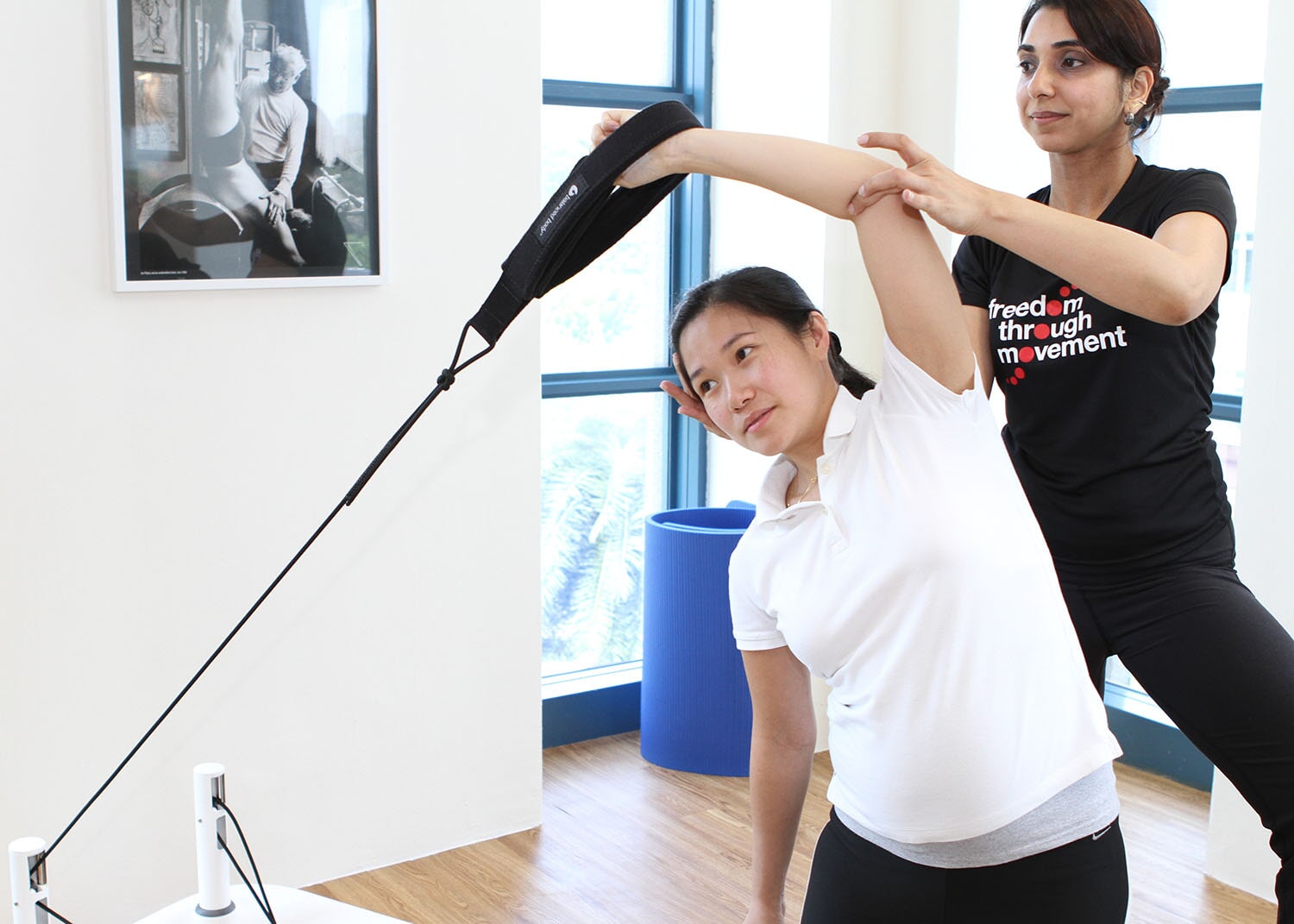Many myths exist around exercise during pregnancy. Everywhere we look we are faced with different opinions, varying beliefs and questionable advice. It is important to not be misinformed and get the facts straight.
In the early to mid 1900s, pregnancy was considered a state of confinement. Exercise was strongly discouraged for numerous different reasons such as preterm labour and overheating. Most of the research that led to these beliefs stemmed from animal studies, not humans. Over the coming decades, more and more research into exercise during pregnancy was conducted and as such, there was a gradual acceptance of exercise as a safe and beneficial activity during the gestational period.
Exercise and Pregnancy
In 2015, the ACOG (American College of Obstetricians and Gynaecologists) came up with a set of guidelines for physical activity during pregnancy and in the postpartum period. In summary, they encourage women with uncomplicated pregnancies to participate in moderate intensity aerobic and strength conditioning exercises on a regular basis (at least 150mins per week). They state that exercise in pregnancy has minimal risks, and benefits the individual by assisting with weight management, enhances psychological well-being and reduced the risk of gestational diabetes.
It is important to consult a health professional to ensure that you are safe to exercise and do not have any pre-existing medical conditions that may put you at risk of harming yourself or your developing foetus.
The ACOG listed numerous activities that are safe to continue or initiate at a moderate intensity during your pregnancy: walking, Pilates (modified), swimming, stationary bike, yoga (modified), running, strength training. Activities that they deemed unsafe include: contact sports (eg boxing or soccer), skiing, horseback riding, scuba diving or ‘hot’ yoga.
Know Your Limits
How do you know if you are exercising at the correct level? Exercise safely with certified professionals and use the ‘talk test’. You should be able to maintain a conversation while you are working out.
Pilates is an excellent way to keep fit during your pregnancy.
It is a slow paced, low impact activity with emphasis on strength and conditioning. With modification to exercises, it allows the pregnant woman to be challenged in a safe environment, enhancing strength and fitness levels.
It is key for women to view their pregnancy as a time to prepare your body for the physical changes and labour. Here at The Moving Body, we have an interest in the care and treatment of pregnant and post-natal women. We have physiotherapists specialised in pregnancy physiotherapy that can advise you on techniques and exercise to prevent or reduce symptoms that rise from pregnancy. We have pre-natal classes (physio-led and pilates based) at The Moving Body that helps to strengthen and tone both upper and lower limbs, stretches muscles that typically tighten during pregnancy, and cues the pelvic floor muscles.

